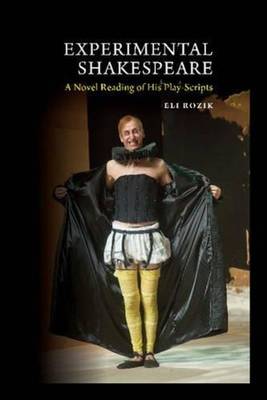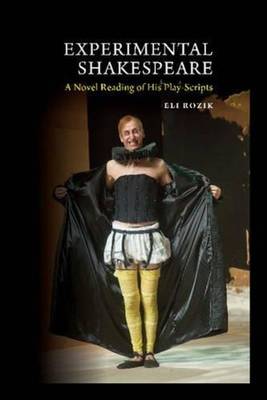
- Retrait gratuit dans votre magasin Club
- 7.000.000 titres dans notre catalogue
- Payer en toute sécurité
- Toujours un magasin près de chez vous
- Retrait gratuit dans votre magasin Club
- 7.000.0000 titres dans notre catalogue
- Payer en toute sécurité
- Toujours un magasin près de chez vous
132,95 €
+ 265 points
Description
Shakespeare's playwrighting and possibly his directing reflect a consistent intent to explore principles that, in his days, were perceived as foreign to the dramatic idiom. This is evident within the framework of contemporary theatre theories at the time. Eli Rozik's novel reading of the play-scripts provides the classical and synchronic theoretical background required to capture Shakespeare's innovative approach, and is a major contribution to the history of European theatre practice and theory. All of Rozik's earlier publications on theatre practice and theory engage with Shakespeare's play-scripts by example and these insights are re-integrated herein. The result is a new and challenging concept of Shakespeare's contribution to the art of theatre, and to a viewpoint of the Bard as an unprecedented experimental playwright and innovator in all that concerns the mastery of theatre art and, especially, the expansion of its means of expression. The central concern of this study is not the experimentation by modernist and postmodernist directors in producing Shakespeare's play-scripts for diachronic audiences, but with the exploration, experimentation and innovation embodied in the Bard's practice itself, as reflected in the wide artistic and historical range of the play-scripts. Drama and theatre scholarship, with its concomitant comprehensive method of analysis, is indispensable in revealing the nature of the Bard's playwrighting, his historical explorations and theatrical innovations. Rozik's earlier works on the nature of theatre, fictional creativity and origin, best place him to interpret Shakespeare's works against their synchronic theoretical background in the light that experimentation lay at the heart of Shakespeare's creativity.
Spécifications
Parties prenantes
- Auteur(s) :
- Editeur:
Contenu
- Nombre de pages :
- 300
- Langue:
- Anglais
Caractéristiques
- EAN:
- 9781845198275
- Date de parution :
- 01-08-16
- Format:
- Livre relié
- Format numérique:
- Genaaid
- Dimensions :
- 155 mm x 236 mm
- Poids :
- 589 g

Les avis
Nous publions uniquement les avis qui respectent les conditions requises. Consultez nos conditions pour les avis.






